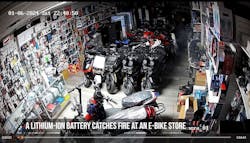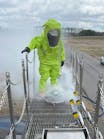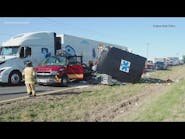DHS S&T, USFA, and FDNY Collaborate on Lithium-Ion Battery Risks at Public Safety Workshop
NEW YORK – The Department of Homeland Security’s (DHS) Science and Technology Directorate (S&T), in collaboration with the U.S. Fire Administration (USFA) and Fire Department of the City of New York (FDNY), hosted a comprehensive two-day workshop titled Charging Forward: Public Safety in Community Electrification. The workshop, led by DHS S&T’s Manhattan-based National Urban Security Technology Laboratory (NUSTL), convened public safety leaders, first responders, and subject matter experts to address the growing public safety risks posed by lithium-ion batteries when they are improperly used, not safety certified, become damaged or fail.
“With the federal government making historic investments in renewable energy, lithium-ion batteries have rapidly emerged as a leading technology for energy storage,” said Julie Brewer, DHS Deputy Under Secretary for Science and Technology. “However, the increasing number of battery-related fires demonstrates the need for us to know more about the risks to protect both first responders and the public.”
USFA and FDNY leaders echoed the urgency to address the dangers posed by these new technologies. The workshop’s goal is to identify research and development needs that will give public safety officials additional tools and resources as community battery electrification advances.
“Fire risks are evolving and so must our response,” said Dr. Lori Moore-Merrell, U.S. Fire Administrator. “As we continue to prioritize renewable energy, we must also enable research to identify any associated fire risks and prioritize the safety of the men and women tasked with responding to fire emergencies that occur.”
“Lithium-ion battery fires are one of the most dangerous threats our first responders face in the country’s largest metro area,” said Robert S. Tucker, FDNY Commissioner. “One fatality due to these fires is too many. The tragic loss of lives and property from these incidents underscores why these collaborative workshops are so vital to creating new strategies and tools to allow us to better protect our city and our members.”
The workshop’s discussions focused on understanding community risk considerations with the expansion of energy storage across residential and commercial sectors, potential solutions for complex response, and actionable next steps to support public safety in ensuring the safety and health of our communities.
The workshop is supported by the U.S. Department of Energy’s (DOE) Pacific Northwest National Laboratory (PNNL). As a result of the workshop, PNNL will work with DHS S&T on producing a comprehensive report offering actionable insights and opportunities for future research, development, and test and evaluation to support public safety.







